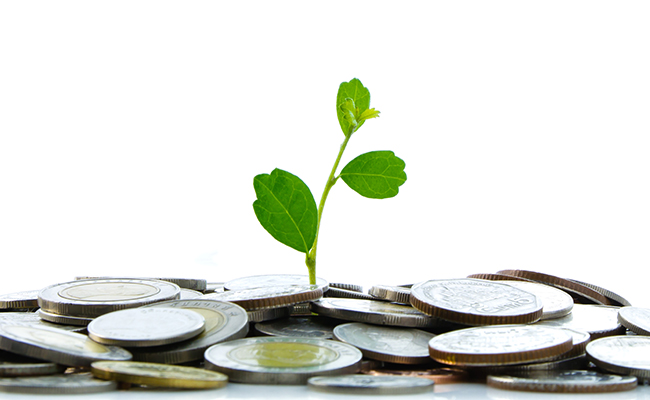
India seeks quick implementation of IMF quota and governance reforms
Source: PIB, Government of India
Finance Minister Arun Jaitley emphasized that the International Monetary Fund (IMF) plays a very important role in the global economy, especially in the current context. In his lead intervention in the plenary session of the International Monetary and Finance Committee (IMFC) of the International Monetary Fund (IMF) in Lima, Peru on Friday, the Finance Minister said that the IMF would be constrained in meeting its obligations if the IMF Quota and governance reforms are not implemented. He expressed concern at the unprecedented delay in implementation of the 14th General Review of Quotas. Speaking about the economic situation back home, the minister emphasized that the government of India is committed to a path of fiscal consolidation. The Finance Minister said that the current account deficit (CAD) in the country has come down substantially to around 1.3% of GDP in 2014-15, which was around 4.8% two years earlier. Similarly, he said that a couple of years back, India was suffering from double-digit inflation; now the inflation has dipped to a low of 3.7%. He said that the country is utilizing the regime of lower oil and commodity prices to increase investments in infrastructure and irrigation. Jaitley said that India is also undertaking comprehensive subsidy rationalization and has successfully rolled out the largest financial inclusion initiative in the world under which around 185 million bank accounts have been opened. Funds are being transferred under flagship schemes directly into the accounts of the beneficiaries. He observed that due to the large number of initiatives underway, encompassing multiple areas of intervention and reforms, he was optimistic that India would continue to record higher level of growth. The Finance Minister highlighted that in the recent past, India has taken a number of measures to improve growth and increase resilience, viz., liberalization of the investment policy, new policies and procedures to improve the business climate, a transparent policy on allocation of natural resources, etc. The Finance Minister informed that major taxation reforms are on the anvil, which require legislative action to become effective. Jaitley participated in the plenary session of the International Monetary and Finance Committee (IMFC) of the International Monetary Fund (IMF) in Lima, Peru on Friday. Consisting of 24 members who are Finance Ministers, Central Bank Governors or others of comparable rank, the IMFC is a key body providing strategic direction to the work and policies of the IMF. The Finance Minister, inter alia, further observed that the global economic outlook outlined by the IMF does not look particularly encouraging, which also has a bearing on India’s exports. He said that India has witnessed two consecutive years of less than normal monsoons. In spite of these challenges, the Minister said that the Indian economy grew by 7.3% during the last year, significantly better than 6.9% recorded the previous year of 2013-14. He stated that this year India expects to do even better. In her intervention, Christine Lagarde, Managing Director, IMF, acknowledged the subsidy reforms undertaken by India. India’s growth performance was also noted by a few other governors of the IMF as a ‘bright spot’, in the global economy. Finance Minister Jaitley also had meeting with Ban Ki-Moon, Secretary General, United Nations in which the Finance Ministers of China and Brazil also participated. The issues discussed included Sustainable Development Goals, their implementation and monitoring and Climate Change Financing. The Finance Minister also participated in the ministerial meeting on climate finance wherein he outlined the steps taken by India to deal with the problem of climate change. In particular, India’s announcement of INDCs under which 40% of the country’s electricity will come from renewable sources by the year 2030. Further, India has embarked on a mission to create 180 GW of solar power generation capacity; elimination of subsidies on fossil fuel; levy of a cess on coal, etc. The Finance Minister stated that the country faces the twin challenges of fighting poverty and investing in climate change. He stressed that the commitment made by the developed countries with regard to climate finance should be fulfilled. Provision of such finance by the developed countries should be new and additional without diverting the existing resource flow under ODA. The Finance Minister pointed out that resource flow under ODA should not be counted against climate change finance and any form of double counting under both climate finance and ODA should be avoided. There is need for genuinely new and additional resource flow to meet climate finance requirements. Shaktikanta Das, Secretary, Department of Economic Affairs, Ministry of Finance also held bilateral meetings with Nathan Sheets, US Under Secretary Treasuries and Keiko Honda, Executive Vice President and CEO, Multilateral Investment Guarantee Agency (MIGA). The Finance Minister is currently on official tour to Peru to attend the annual meetings of the International Monetary Fund and the World Bank and other associated meetings. He is accompanied by Raghuram Rajan, Governor RBI, Shaktikanta Das, Secretary Economic Affairs, Arvind Subramanian, Chief Economic Adviser and other officials.
October 10, 2015 | 4:02pm IST.






 to success.
to success.